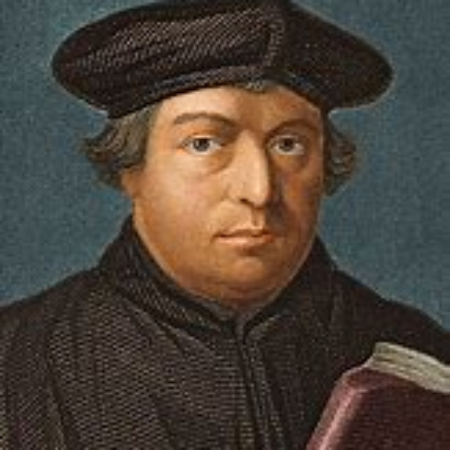It was on this day in 1517 that the German monk, Martin Luther famously nailed his 95 theses to the door of Wittenberg Cathedral. Unintentionally, he set in train a whole series of events, a veritable spiritual earthquake, that was to completely reshape the world; and even today we are feeling some of the aftershocks of that event.

Luther had no plans to start a religious revolution and he wasn’t even converted at this point in time; that came some time later. Luther was troubled by some of the Roman Catholic Church’s teaching and practices and listed 95 points he wanted to be debated by his theological colleagues at the University of Wittenberg. If he’d been alive today he’d have put them on the web or on Instagram or something like that, but in his day, the church door functioned as an academic bulletin board, so it was the natural place to notify fellow faculty members of a faculty meeting. However, his concerns were quickly copied and translated and sent throughout Germany and then beyond, and a fire was started that burns to this day.
The posting of the theses was not intended to be an act of rebellion against the church. Instead, it was the work of a responsible church theologian who was seeking to address what he perceived to be distortions of the church’s teaching.
The Protestant Reformation of the 16th century changed Christianity – and, in many ways, the world forever.
Visionary pastors and leaders like Martin Luther and John Calvin and John Knox here in Scotland spearheaded a movement that transformed Christianity and eventually led to the emergence of the Protestant denominations that exist today.
At the heart of the Reformation, and it is so important to remember this today, was the question: how can a man or woman get right with God?
This wasn’t essentially a debate about church practice, though that was involved. It grew out of the personal spiritual journey of Martin Luther who wrestled for years with the all-important question: how can a sinful person be right with God?
In 1505, 12 years before the Reformation as we know it started, Luther became a monk after a frightening incident when a lightning bolt struck the ground near him and he cried out, “St Anne, help me! I will become a monk.” He lived in a constant awareness of being sinful and of the fact that God was his Judge. He believed that he had to earn Christ’s forgiveness and applied himself to the most rigorous spiritual discipline in order to earn Christ’s favour.
As a monk, there were seven set times of prayer each day. The monks were woken between 1 and 2 in the morning, when they would jump out of bed, make the sign of the cross, go to church and sprinkle holy water on their heads, and pray and chant.
He went to Rome where he climbed on his knees up a flight of stairs, believed to be Pilate’s Stairs from Jerusalem. On each step, he recited the Lord’s Prayer, because he had been told that if he did this, when he got to the top step a loved one would be freed from purgatory.
In this, and 100 other ways, Luther tried to clear his conscience and earn salvation, but the more he tried, the more he failed and the more despairing he became.
One day, while studying Romans, and the connection between the righteousness of God and the justice of God, he suddenly understood what it meant that “the just shall live by faith”.
He later wrote,
“Then I grasped that the justice of God is that righteousness by which through grace and sheer mercy God justifies us through faith. Thereupon I felt myself to have been reborn and to have gone through open doors into paradise.”
Luther no longer feared the justice of God because he realised that Christ’s substitutionary death and righteousness had satisfied God’s justice for him and so there was nothing to fear.
That’s why he so hated the practice of indulgences, and the blasphemy of the mass and the prayers to the saints and the teaching about purgatory, because they all denied the truth of justification by faith alone.
It is so important to remember this. The Reformation grew out of Luther’s personal spiritual journey as he wrestled with the all-important question – how can a sinful person be right with God?
There is no greater or more important question in the world. If we get this wrong, we get everything wrong.
The Five Solas – Sola is Latin for “alone” or “only” – are five Latin phrases (or slogans) that emerged during the Reformation to summarize the Reformers’ theological convictions about the essentials of Christianity. The Reformers like Martin Luther and John Calvin never summed up their teaching with this neat set of phrases we now know as the five solas.
The solas developed over time as a way of capturing the essence of what the Reformation was mainly about in its dispute with the Roman Catholic Church.
The Five Solas are:
- sola gratia (“grace alone”): We are saved by the grace of God alone.
- sola Christo (“Christ alone”): Jesus Christ alone is our Lord, Saviour, and King.
- sola fide (“faith alone”): We are saved through faith alone in Jesus Christ.
- soli Deo gloria (“to the glory of God alone”): We live for the glory of God alone.
- sola scriptura (“Scripture alone”): The Bible alone is our highest authority.
